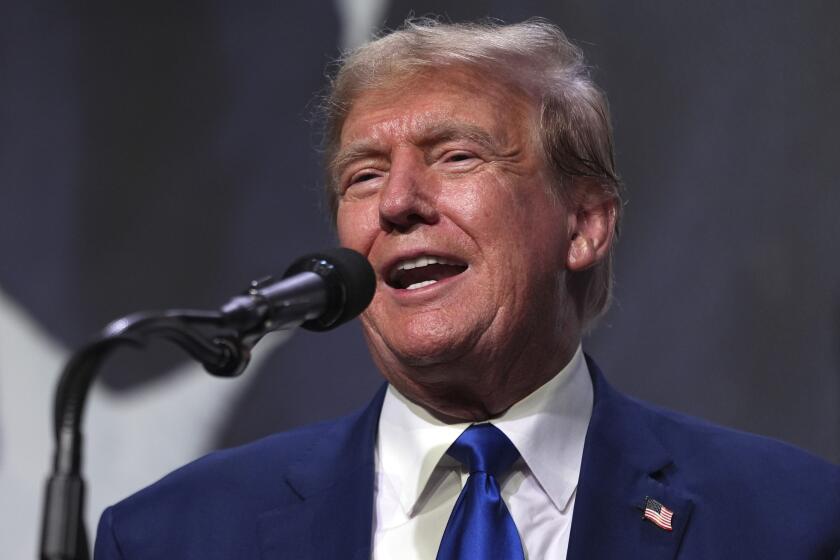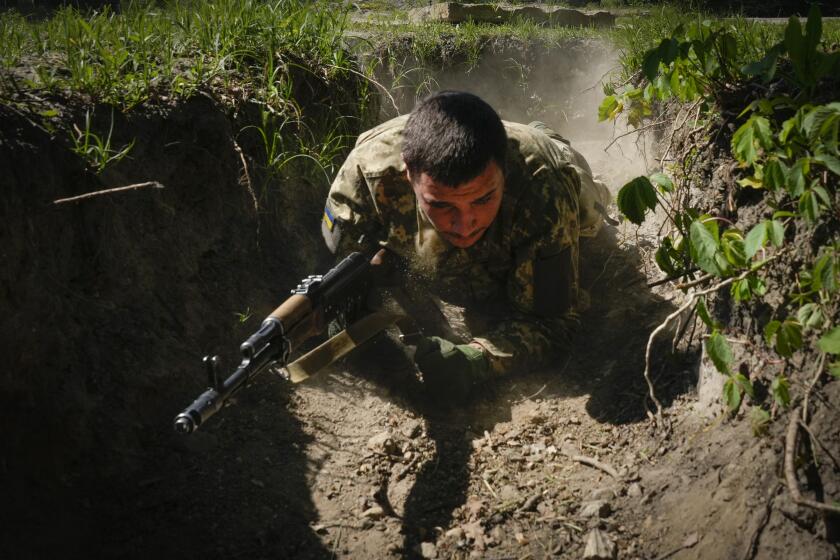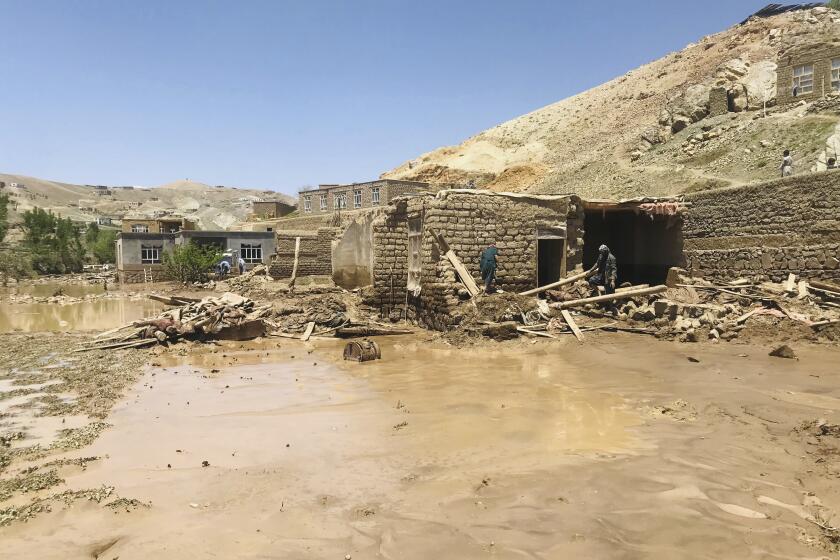Europeans Support NATO Where It Counts: Manpower
Is it true that Europeans do not bear a fair share of the burden of NATO’s defense? There is no general and unequivocal reply to that query. The NATO member states in Europe contribute to Western security in different ways, but those on the Continent have one thing in common: They all have compulsory military service. That should be taken into account when making any comparison with the North American allies.
Let me work this out for my own country, the Netherlands. We devote 3.3% of our gross national product to national defense. The United States spends nearly double that percentage on defense. An American senator once remarked that American citizens work three weeks a year to shoulder the defense burden, while in countries like mine that amounts to only one week and a half. In a way that arithmetic is about right. The difference of 1 1/2 weeks per year adds up to 60 weeks during a 40-year working life. And 60 weeks happens to be the minimum stint of national military service that every young man in my country has to do.
Time is money. Money equals time. Of course, every comparison has its shortcomings (for one thing, this one leaves out women). Still, time spent in support of security and freedom is the best common denominator I can think of. Given the choice, how many young Americans would prefer being drafted into military service for 14 to 18 months to paying taxes? In my country young men have no choice. Before commencing their normal careers, they get military training. Later on they may be called up for exercises. That means having to leave their jobs and families for weeks.
So young Dutchmen think they are doing their bit for common security. They consider themselves well ahead of their American contemporaries just starting to pay taxes. And--most important of all--if worst comes to worst, they will do the fighting.
Deterrence is not achieved by money but by fighting power. That is an additional reason why Europeans are not really impressed by the high percentage of GNP that the United States devotes to defense. What counts are the forces a country can deploy. There again, compulsory military service has tremendous advantages. For one thing, draftees receive low pay and that enables us to devote about one-third of our defense budget to equipment.
More important still is that we, a people of 15 million, can mobilize 300,000 troops within 48 hours. The Netherlands Royal Army then occupies a central position on the North German Plain with a full-fledged corps. This corps consists of three armored divisions and an extra mechanized brigade, 1,000 tanks, 3,000 armored personnel carriers, 500 heavy artillery pieces plus all the kit and caboodle that comes with a modern army. The Germans, a people of 60 million, field four similar army corps. So between them the Germans and the Dutch contribute as many divisions to NATO as the United States, with a population of more than 240 million.
Moreover, at mobilization, both West Germany and the Netherlands will deploy strong territorial forces. With the absence of France from the military organization of the North Atlantic Treaty, reinforcement and resupply operation of land forces from North America will take place through the Low Countries, largely through the port of Rotterdam and Dutch airfields. The territorial forces and the necessary air cover serve to protect that operation. To this I should add that my country has a navy and an air force second to none in quality and certainly not negligible in numbers.
All this is not to say that extra money could not enhance the Dutch defense posture. But the real limiting factor is manpower, given the decreasing birth rate since the 1970s.
Our young men have no doubt that they are doing their bit for NATO. There is more commitment in being ready to fight for freedom in person than in paying taxes. That is point one.
The second message is: Look through the money veil! It is not the input in dollars or guilders that counts, but output in well-trained, motivated, in-place forces, both along the Iron Curtain and to protect the lines of communications by land, sea and air. Measured that way, we are doing our fair share.
More to Read
Start your day right
Sign up for Essential California for news, features and recommendations from the L.A. Times and beyond in your inbox six days a week.
You may occasionally receive promotional content from the Los Angeles Times.






